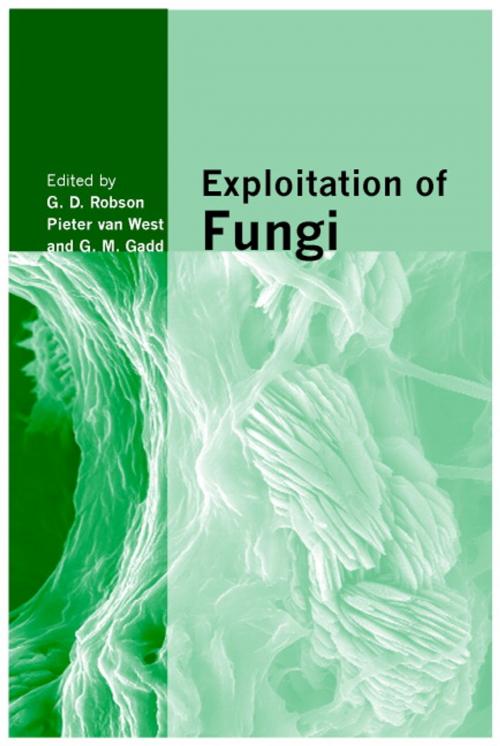Exploitation of Fungi
Nonfiction, Science & Nature, Science, Biological Sciences, Microbiology, Technology| Author: | ISBN: | 9780511849046 | |
| Publisher: | Cambridge University Press | Publication: | May 24, 2007 |
| Imprint: | Cambridge University Press | Language: | English |
| Author: | |
| ISBN: | 9780511849046 |
| Publisher: | Cambridge University Press |
| Publication: | May 24, 2007 |
| Imprint: | Cambridge University Press |
| Language: | English |
The fungi are a highly diverse kingdom of eukaryotic microbes. Recent advances in molecular genetics, together with the release of whole genome sequences of an increasing number of fungi, are facilitating their exploitation and commercialisation. Fungi have the ability to secrete large quantities of proteins of commercial value, and their complex secondary metabolic pathways produce a diverse range of bioactive compounds which have had a major impact in the pharmaceuticals market. In addition, the fungi themselves are increasingly being developed as alternatives to conventional chemically-based pest control strategies, and as bioremediation agents capable of transforming pollutants in the soil environment. With chapters written by international experts, this volume highlights current and future biological, biochemical, and molecular exploitation of the fungi in biotechnology. It will have broad appeal, not only to mycologists and microbiologists, but also to biomedical scientists, biotechnologists, environmental and molecular scientists, plant pathologists and geneticists.
The fungi are a highly diverse kingdom of eukaryotic microbes. Recent advances in molecular genetics, together with the release of whole genome sequences of an increasing number of fungi, are facilitating their exploitation and commercialisation. Fungi have the ability to secrete large quantities of proteins of commercial value, and their complex secondary metabolic pathways produce a diverse range of bioactive compounds which have had a major impact in the pharmaceuticals market. In addition, the fungi themselves are increasingly being developed as alternatives to conventional chemically-based pest control strategies, and as bioremediation agents capable of transforming pollutants in the soil environment. With chapters written by international experts, this volume highlights current and future biological, biochemical, and molecular exploitation of the fungi in biotechnology. It will have broad appeal, not only to mycologists and microbiologists, but also to biomedical scientists, biotechnologists, environmental and molecular scientists, plant pathologists and geneticists.















